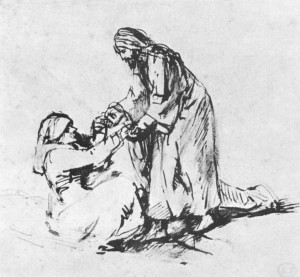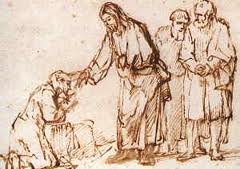Whether you’re married or single is not important. Your marital status is not the key concern. The question is: Are you being faithful to the Lord? Paul’s main concern throughout 1 Corinthians 7 is that we “live in a right way in undivided devotion to the Lord.”
“The time is short. From now on those who have wives should live as if they had none; those who mourn, as if they did not; those who are happy, as if they were not; those who buy something, as if it were not theirs to keep; those who use the things of the world, as if not engrossed in them. For this world in its present form is passing away. I would like you to be free from concern… I am saying this for your own good, not to restrict you, but that you may live in a right way in undivided devotion to the Lord.” ~1 Corinthians 7:29-32a, 35
The time is short, he says. The old order of things is doomed. Because of Christ Jesus’ death, burial, and resurrection, this present way of life is on borrowed time. It’s passing away. But not quite yet. We live in the in-between times. Paul calls it the “present crisis” in verse 26. Jesus calls it the “days of distress” in Mark 13. So, yes, the world goes on as we know it. All the social and material concerns are still there. We’ve got to plan and work for tomorrow. We can’t just lay around and watch Sponge Bob until Jesus returns. But what we know about the Kingdom changes our attitudes about all of it. We ought to be glad about our successes, but not overly glad; we should be sad about our failures, but not overly sad; we should enjoy this present world and the things of this present world, but not be engrossed in those things. All those things. Including marriage and family.
Both being married and not being married are good conditions to be in. We shouldn’t be overly happy about being married or overly disappointed about being single. And vice-versa. You shouldn’t be super excited that you’re single or down in the dumps because you’re married. The question is, married or single: Are you becoming more like Christ?
Paul addresses every possible situation in this chapter: singles, virgins, married people, divorced, widowed, all of it. And in each case he makes it clear that the particular situation is fine, it’s inconsequential, it’s not worth worrying about. In fact, he urges all people in each situation to remain just as they are. The specific circumstance is not the pressing issue. Our energies should not spent on worrying about or trying to change our marital status. Married or single, the focus is on our undivided devotion to the Lord.
Peace,
Allan









Recent Comments